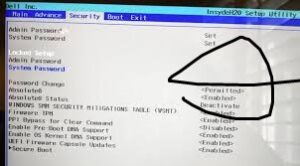
With your BIOS unlocked you will gain access to a whole world of further system configuration, customization and recovery options that have up until now been restricted by OEM lock-outs. Whether it is performance tuning and virtualization enabling or storage optimizations and firmware upgrades, an unlocked BIOS can be a very powerful tool in the hands of knowledgeable users and IT professionals.
With great power however, comes great responsibility. As discussed in this guide, BIOS unlocking is not a trivial procedure it is a technically precise and risk-reducing process that requires a clear awareness of the legal and moral limitations. Any wrong move may result in the irreversible damage of hardware, breach of security or even breach of service contract and information protection regulation.
What We have Covered
In this blog we have discussed:
- Why unlocking BIOS is important – Performance, flexibility and features.
- The risks – systematic bricking, voiding of warranty, and security exposure.
- Unlocking techniques – Everything between key combinations and CMOS resets to master password generators and SPI flashers.
- Practical applications – such as professional overclocking, system recovery and enterprise provisioning.
- Post-unlock optimization, e.g. adjusting fan curves, re-enabling TPM/Secure Boot, and controlling firmware updates.
- Resolution of typical troubleshooting problems- such as password persistence and drive level security locks.
- Important resources and communities – including BIOS utilities such as bios-pw.org or more extreme modding forums such as Coreboot.
- Legal and ethical implications – focusing on the responsible use and adherence to the manufacturers and jurisdictional guidelines.
